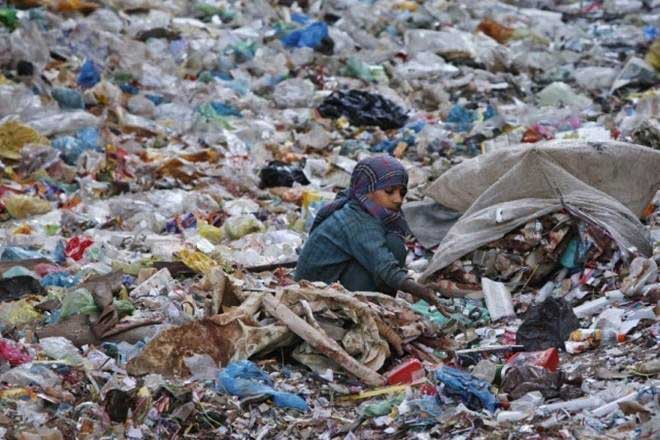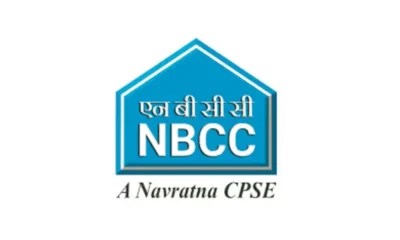Concrete
UFlex is the ‘first company in the world to recycle mix plastic waste.’
Published
4 years agoon
By
admin
India Cement Review took an exclusive interview with Shashi Garg, Business Head, Cement Packaging business at Uflex Ltd. about the entire Cement packaging scenario, the ??ain points??that generally intrigue manufacturers, and their ground-breaking solutions.
What is the best advantage of Uflex packaging to Cement customers?
Owing to the full backward integration into films (BOPP, Metalized and others), Chemicals (Inks, Coatings, Adhesives), Engineering (Converting & Packing Equipments), Holography (Films, Labels) and Cylinders (Electronic, Laser and even base-shell manufacturing), UFlex has an exclusive advantage to deliver customized solutions to customers. We provide end-to-end packaging support to our customers starting from design to delivery.
Uflex BOPP film, unlike other packaging films, is an innovation in itself. With their diverse and enormous features like transparent & matte, heat-sealable and non-sealable, direct embossible, superior ink adhesion, anti-skid, high barrier, cold release or direct extrusion coatable films, Uflex is able to make revolutionary BOPP bags.
Explain the role played by packaging of a product in brand building. How you have beenhelping the consumer industry in building a brand through packaging?
The primary objective of Uflex is to deliver our customers with a unique packaging experience. I think, that is only possible when they are able to observe and analyse themselves what difference packaging can bring them, in terms of market positioning, and product pricing. Packaging is one of the primary mediums in which suppliers communicate with their end consumers. In the Indian mind-set, an attractive packaging always influences the buyer decision. We always design our packaging keeping this in mind, and ensure that the dimensions have the largest branding exposure. With our high-end technologies, we are able to create a virtual reality in form of packaging bags, and we always encourage our customers, to take the most added benefits out of our technology and services. Our packaging is the face of any product.
Give us a brief idea about your association with cement industry. With what products you started and what are new products added in your bouquet?
Uflex began its venture into the Cement industry around seven years back with our fresh and new-born BOPP bags. We were the pioneers in BOPP and the journey has not been very smooth. The market was different then. Customers were limated to using the common and inferior PP sacks. Branding in cement bags was not commonly accepted. It took us quite some time to educate customers about the unchallenged benefits of BOPP bags, and the need for branding on packaging. However, in only a couple of years, our bags were a great success and were loved by our customers across the nation. We started with standard BOPP bags, and presently, our bags are available in glossy and matte variants, they are UV- protected, have a high co-efficient of friction for easy stacking, and our most recent launch have been the shower-proof bags to save any of our customer?? losses due to unwanted weather conditions.
Provide us some information on these Shower Proof bags. Are you in a position to supply this product? What is the advantage of using Showerproof bags?
Moisture ingression and product wastage has been a long-discussed concern with our customers that involved saving the products from random showers, and also moisture seepage at coastal regions. Products with comparatively slower consumption, stacked at the bottom rows are generally damaged at depot locations leading to entire product loss. Also the supply chain of Cement and Construction industry is exposed to severe mishandling concerns including uncontrolled exposure to weather conditions. Keeping this in mind, we designed very special shower proof bags which can be converted to complete airtight and moisture proof bags by debarring any chance of external air and moisture seepage into the bags. The bags are allowed with limited passage to release the air captured in the bags at the time of filling.
What is Uflex doing to handle the sustainability concerns of customers? Are your products eco-friendly?
UFlex believes in Environmental Sustainability and has taken several key initiatives in India towards reducing Carbon Foot Print and Improving Productivity. UFlex has constantly invested in newer technologies which consume less energy per Ton of Flexible Packaging. All in-house wastages are recycled and ploughed back in to the life cycle to reduce pressure on landfills thereby arresting pollution.
Our six prolonged sustainability initiative focuses on :
-
Lowering Carbon Footprint
-
Using Renewable Resources in Manufacturing
-
Recycling Wastages
-
Energy Efficient Production Technologies
-
Reducing Plastic consumption
-
Encouraging Green Polymers
What is Project Plastic Fix ?
UFlex Group has been a trendsetter when it comes to sustainable innovation and commitment towards the ??ircular Economy?? It was the ??irst company in the world to recycle mix plastic waste??for which it earned recognition at Davos Recycle Forum in 1995, way ahead of other companies from developed economies.
Our Project Plastic Fix is a mix of four innovative ways to create wealth from plastic waste:
Pyrolysis, Recycling, Biomass & Asclepius.
Recycling of plastic is the need of the hour. UFlex, India?? largest flexible packaging company recognized the need to recycle plastic waste more than two decades back and established recycling units in its plants that convert MLP Waste into Pellets. An added feature of the recycled material (pellets) is that it is re-used to manufacture industrial and household products like roads, outdoor furniture, paver tiles, ladders and many more such essential
items. Thus, UFlex is helping create a circular plastic economy by keeping plastic 'In the Economy' and 'Out of the Environment'.
Our Pyrolysis plant has also been setup at Noida, which is an upcoming resource recovery process that converts waste into energy helping environment clear the plastic waste. At its Noida Packaging plant, UFlex will be converting 6 tonnes of discarded waste material that??
generated every day from printing, unused trim, laminates, tubes and other unprocessed material into Liquid Fuel, Hydrocarbon Gas and Carbon Black.
Shashi Garg is a Chartered Accountant having 38 years of wide experience in Finance, Production and Marketing. He looks after overall packaging production, sales & marketing as Business Head of the Cement Packaging Division.
About UFlex: It is India?? largest flexible packaging company with headquarters and three manufacturing facilities in Noida, the National Capital Region of Delhi, supplies to a majority of customers in India and also to multinational companies across the globe. With a strong presence in North America, Europe, Africa, Hungary, Russia, South East Asia and the Middle East, UFlex has established itself as the largest flexible packaging manufacturer and exporter. UFlex has its manufacturing capacity of over 135000 TPA with plants is located in Noida and Jammu.
Concrete
Our strategy is to establish reliable local partnerships
Published
5 hours agoon
February 19, 2026By
admin
Jean-Jacques Bois, President, Nanolike, discusses how real-time data is reshaping cement delivery planning and fleet performance.
As cement producers look to extract efficiency gains beyond the plant gate, real-time visibility and data-driven logistics are becoming critical levers of competitiveness. In this interview with Jean-Jacques Bois, President, Nanolike, we discover how the company is helping cement brands optimise delivery planning by digitally connecting RMC silos, improving fleet utilisation and reducing overall logistics costs.
How does SiloConnect enable cement plants to optimise delivery planning and logistics in real time?
In simple terms, SiloConnect is a solution developed to help cement suppliers optimise their logistics by connecting RMC silos in real time, ensuring that the right cement is delivered at the right time and to the right location. The core objective is to provide real-time visibility of silo levels at RMC plants, allowing cement producers to better plan deliveries.
SiloConnect connects all the silos of RMC plants in real time and transmits this data remotely to the logistics teams of cement suppliers. With this information, they can decide when to dispatch trucks, how to prioritise customers, and how to optimise fleet utilisation. The biggest savings we see today are in logistics efficiency. Our customers are able to sell and ship more cement using the same fleet. This is achieved by increasing truck rotation, optimising delivery routes, and ultimately delivering the same volumes at a lower overall logistics cost.
Additionally, SiloConnect is designed as an open platform. It offers multiple connectors that allow data to be transmitted directly to third-party ERP systems. For example, it can integrate seamlessly with SAP or other major ERP platforms, enabling automatic order creation whenever replenishment is required.
How does your non-exclusive sensor design perform in the dusty, high-temperature, and harsh operating conditions typical of cement plants?
Harsh operating conditions such as high temperatures, heavy dust, extreme cold in some regions, and even heavy rainfall are all factored into the product design. These environmental challenges are considered from the very beginning of the development process.
Today, we have thousands of sensors operating reliably across a wide range of geographies, from northern Canada to Latin America, as well as in regions with heavy rainfall and extremely high temperatures, such as southern Europe. This extensive field experience demonstrates that, by design, the SiloConnect solution is highly robust and well-suited for demanding cement plant environments.
Have you initiated any pilot projects in India, and what outcomes do you expect from them?
We are at the very early stages of introducing SiloConnect in India. Recently, we installed our
first sensor at an RMC plant in collaboration with FDC Concrete, marking our initial entry into the Indian market.
In parallel, we are in discussions with a leading cement producer in India to potentially launch a pilot project within the next three months. The goal of these pilots is to demonstrate real-time visibility, logistics optimisation and measurable efficiency gains, paving the way for broader adoption across the industry.
What are your long-term plans and strategic approach for working with Indian cement manufacturers?
For India, our strategy is to establish strong and reliable local partnerships, which will allow us to scale the technology effectively. We believe that on-site service, local presence, and customer support are critical to delivering long-term value to cement producers.
Ideally, our plan is to establish an Indian entity within the next 24 months. This will enable us to serve customers more closely, provide faster support and contribute meaningfully to the digital transformation of logistics and supply chain management in the Indian cement industry.

Pankaj Kejriwal, Whole Time Director and COO, Star Cement, on driving efficiency today and designing sustainability for tomorrow.
In an era where the cement industry is under growing pressure to decarbonise while scaling capacity, Star Cement is charting a pragmatic yet forward-looking path. In this conversation, Pankaj Kejriwal, Whole Time Director and COO, Star Cement, shares how the company is leveraging waste heat recovery, alternative fuels, low-carbon products and clean energy innovations to balance operational efficiency with long-term sustainability.
How has your Lumshnong plant implemented the 24.8 MW Waste Heat Recovery System (WHRS), and what impact has it had on thermal substitution and energy costs?
Earlier, the cost of coal in the Northeast was quite reasonable, but over the past few years, global price increases have also impacted the region. We implemented the WHRS project about five years ago, and it has resulted in significant savings by reducing our overall power costs.
That is why we first installed WHRS in our older kilns, and now it has also been incorporated into our new projects. Going forward, WHRS will be essential for any cement plant. We are also working on utilising the waste gases exiting the WHRS, which are still at around 100 degrees Celsius. To harness this residual heat, we are exploring systems based on the Organic Rankine Cycle, which will allow us to extract additional power from the same process.
With the launch of Star Smart Building Solutions and AAC blocks, how are you positioning yourself in the low-carbon construction materials segment?
We are actively working on low-carbon cement products and are currently evaluating LC3 cement. The introduction of autoclaved aerated concrete (AAC) blocks provided us with an effective entry into the consumer-facing segment of the industry. Since we already share a strong dealer network across products, this segment fits well into our overall strategy.
This move is clearly supporting our transition towards products with lower carbon intensity and aligns with our broader sustainability roadmap.
With a diverse product portfolio, what are the key USPs that enable you to support India’s ongoing infrastructure projects across sectors?
Cement requirements vary depending on application. There is OPC, PPC and PSC cement, and each serves different infrastructure needs. We manufacture blended cements as well, which allows us to supply products according to specific project requirements.
For instance, hydroelectric projects, including those with NHPC, have their own technical norms, which we are able to meet. From individual home builders to road infrastructure, dam projects, and regions with heavy monsoon exposure, where weather-shield cement is required, we are equipped to serve all segments. Our ability to tailor cement solutions across diverse climatic and infrastructure conditions is a key strength.
How are you managing biomass usage, circularity, and waste reduction across
your operations?
The Northeast has been fortunate in terms of biomass availability, particularly bamboo. Earlier, much of this bamboo was supplied to paper plants, but many of those facilities have since shut down. As a result, large quantities of bamboo biomass are now available, which we utilise in our thermal power plants, achieving a Thermal Substitution Rate (TSR) of nearly 60 per cent.
We have also started using bamboo as a fuel in our cement kilns, where the TSR is currently around 10 per cent to 12 per cent and is expected to increase further. From a circularity perspective, we extensively use fly ash, which allows us to reuse a major industrial waste product. Additionally, waste generated from HDPE bags is now being processed through our alternative fuel and raw material (AFR) systems. These initiatives collectively support our circular economy objectives.
As Star Cement expands, what are the key logistical and raw material challenges you face in scaling operations?
Fly ash availability in the Northeast is a constraint, as there are no major thermal power plants in the region. We currently source fly ash from Bihar and West Bengal, which adds significant logistics costs. However, supportive railway policies have helped us manage this challenge effectively.
Beyond the Northeast, we are also expanding into other regions, including the western region, to cater to northern markets. We have secured limestone mines through auctions and are now in the process of identifying and securing other critical raw material resources to support this expansion.
With increasing carbon regulations alongside capacity expansion, how do you balance compliance while sustaining growth?
Compliance and growth go hand in hand for us. On the product side, we are working on LC3 cement and other low-carbon formulations. Within our existing product portfolio, we are optimising operations by increasing the use of green fuels and improving energy efficiency to reduce our carbon footprint.
We are also optimising thermal energy consumption and reducing electrical power usage. Notably, we are the first cement company in the Northeast to deploy EV tippers at scale for limestone transportation from mines to plants. Additionally, we have installed belt conveyors for limestone transfer, which further reduces emissions. All these initiatives together help us achieve regulatory compliance while supporting expansion.
Looking ahead to 2030 and 2050, what are the key innovation and sustainability priorities for Star Cement?
Across the cement industry, carbon capture is emerging as a major focus area, and we are also planning to work actively in this space. In parallel, we see strong potential in green hydrogen and are investing in solar power plants to support this transition.
With the rapid adoption of solar energy, power costs have reduced dramatically – from 10–12 per unit to around2.5 per unit. This reduction will enable the production of green hydrogen at scale. Once available, green hydrogen can be used for electricity generation, to power EV fleets, and even as a fuel in cement kilns.
Burning green hydrogen produces only water and oxygen, eliminating carbon emissions from that part of the process. While process-related CO2 emissions from limestone calcination remain a challenge, carbon capture technologies will help address this. Ultimately, while becoming a carbon-negative industry is challenging, it is a goal we must continue to work towards.
Concrete
Turning Downtime into Actionable Intelligence
Published
6 hours agoon
February 19, 2026By
admin
Stoppage Insights instantly identifies root causes and maps their full operational impact.
In cement, mining and minerals processing operations, every unplanned stoppage equals lost production and reduced profitability. Yet identifying what caused a stoppage remains frustratingly complex. A single motor failure can trigger cascading interlocks and alarm floods, burying the root cause under layers of secondary events. Operators and maintenance teams waste valuable time tracing event chains when they should be solving problems. Until now.
Our latest innovation to our ECS Process Control Solution(1) eliminates this complexity. Stoppage Insights, available with the combined updates to our ECS/ControlCenter™ (ECS) software and ACESYS programming library, transforms stoppage events into clear, actionable intelligence. The system automatically identifies the root cause of every stoppage – whether triggered by alarms, interlocks, or operator actions – and maps all affected equipment. Operators can click any stopped motor’s faceplate to view what caused the shutdown instantly. The Stoppage UI provides a complete record of all stoppages with drill-down capabilities, replacing manual investigation with immediate answers.
Understanding root cause in Stoppage Insights
In Stoppage Insights, ‘root cause’ refers to the first alarm, interlock, or operator action detected by the control system. While this may not reveal the underlying mechanical, electrical or process failure that a maintenance team may later discover, it provides an actionable starting point for rapid troubleshooting and response. And this is where Stoppage Insights steps ahead of traditional first-out alarm systems (ISA 18.2). In this older type of system, the first alarm is identified in a group. This is useful, but limited, as it doesn’t show the complete cascade of events, distinguish between operator-initiated and alarm-triggered stoppages, or map downstream impacts. In contrast, Stoppage Insights provides complete transparency:
- Comprehensive capture: Records both regular operator stops and alarm-triggered shutdowns.
- Complete impact visibility: Maps all affected equipment automatically.
- Contextual clarity: Eliminates manual tracing through alarm floods, saving critical response time.
David Campain, Global Product Manager for Process Control Systems, says, “Stoppage Insights takes fault analysis to the next level. Operators and maintenance engineers no longer need to trace complex event chains. They see the root cause clearly and can respond quickly.”
Driving results
1.Driving results for operations teams
Stoppage Insights maximises clarity to minimise downtime, enabling operators to:
• Rapidly identify root causes to shorten recovery time.
• View initiating events and all affected units in one intuitive interface.
• Access complete records of both planned and unplanned stoppages
- Driving results for maintenance and reliability teams
Stoppage Insights helps prioritise work based on evidence, not guesswork:
• Access structured stoppage data for reliability programmes.
• Replace manual logging with automated, exportable records for CMMS, ERP or MES.(2)
• Identify recurring issues and target preventive maintenance effectively.
A future-proof and cybersecure foundation
Our Stoppage Insights feature is built on the latest (version 9) update to our ACESYS advanced programming library. This industry-leading solution lies at the heart of the ECS process control system. Its structured approach enables fast engineering and consistent control logic across hardware platforms from Siemens, Schneider, Rockwell, and others.
In addition to powering Stoppage Insights, ACESYS v9 positions the ECS system for open, interoperable architectures and future-proof automation. The same structured data used by Stoppage Insights supports AI-driven process control, providing the foundation for machine learning models and advanced analytics.
The latest releases also respond to the growing risk of cyberattacks on industrial operational technology (OT) infrastructure, delivering robust cybersecurity. The latest ECS software update (version 9.2) is certified to IEC 62443-4-1 international cybersecurity standards, protecting your process operations and reducing system vulnerability.
What’s available now and what’s coming next?
The ECS/ControlCenter 9.2 and ACESYS 9 updates, featuring Stoppage Insights, are available now for:
- Greenfield projects.
- ECS system upgrades.
- Brownfield replacement of competitor systems.
Stoppage Insights will also soon integrate with our ECS/UptimeGo downtime analysis software. Stoppage records, including root cause identification and affected equipment, will flow seamlessly into UptimeGo for advanced analytics, trending and long-term reliability reporting. This integration creates a complete ecosystem for managing and improving plant uptime.
(1) The ECS Process Control Solution for cement, mining and minerals processing combines proven control strategies with modern automation architecture to optimise plant performance, reduce downtime and support operational excellence.
(2) CMMS refers to computerised maintenance management systems; ERP, to enterprise resource planning; and MES to manufacturing execution systems.

Our strategy is to establish reliable local partnerships

Power Build’s Core Gear Series

Compliance and growth go hand in h and

Turning Downtime into Actionable Intelligence

FORNNAX Appoints Dieter Jerschl as Sales Partner for Central Europe

Our strategy is to establish reliable local partnerships

Power Build’s Core Gear Series

Compliance and growth go hand in h and

Turning Downtime into Actionable Intelligence















